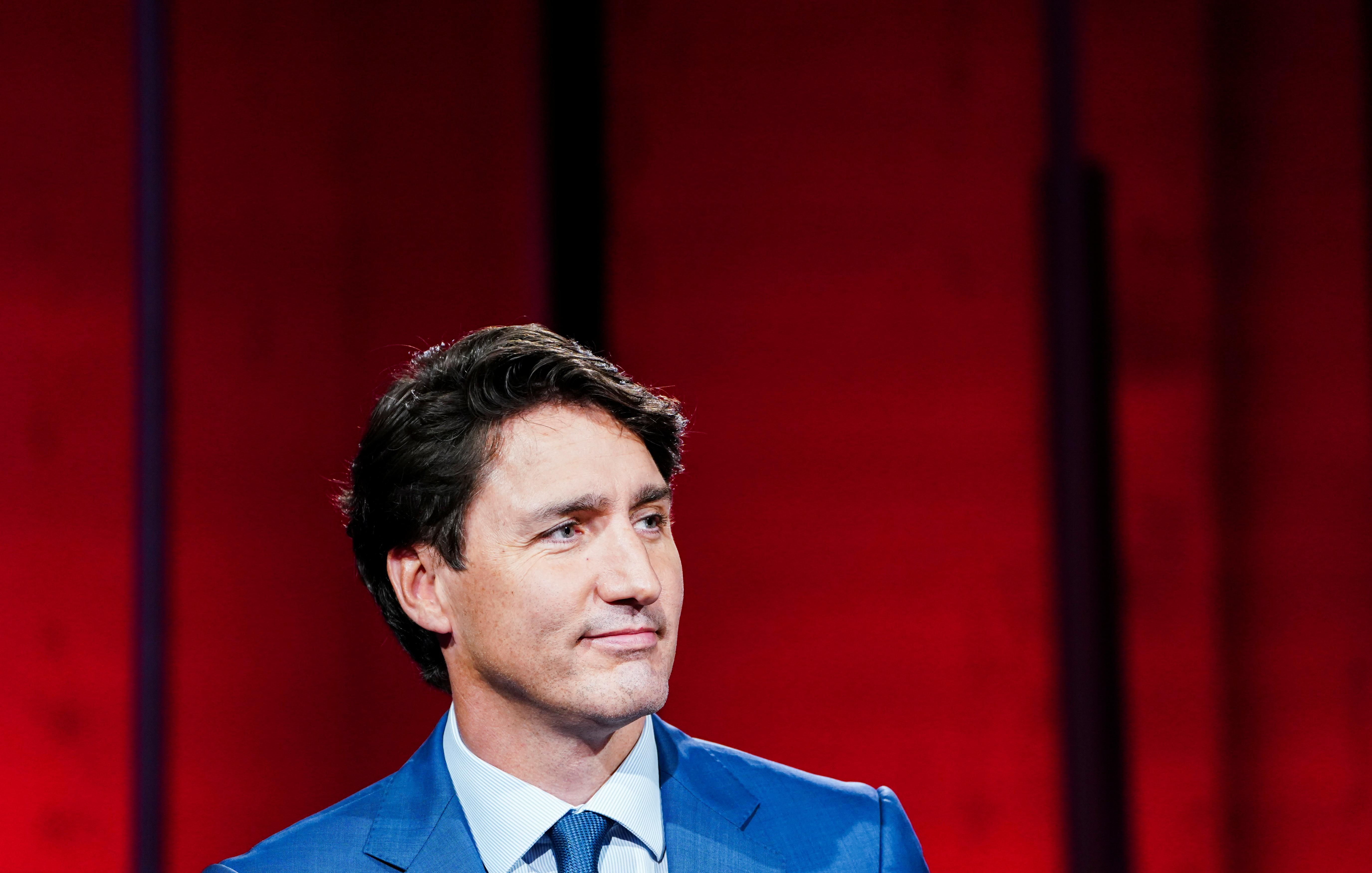September 15, 2021
On Monday, Canada's liberal hunk of a PM heads into early elections that no one seems to have wanted... except for him.
When Justin Trudeau announced the move back on August 15, many people questioned the wisdom of holding a national election amid the economic and public health upheavals of the pandemic. "Read the room, Justin," was a common quip, with many saying the early vote was irresponsible from a public health perspective.
So, just days out from the election, how are things looking for (the other) JT, and how — and why — did we get here?
Why did Trudeau cut short his second term? It would have seemed safer for Trudeau to wait until his term ends in 2023, giving the economy time to recover, and Canadians time to settle into post-pandemic life. When asked about his unexpected announcement last month, Trudeau offered a vague answer about the ongoing COVID response and recovery: "The government and indeed Parliament needs an opportunity to get a mandate from Canadians."
But many observers say that the early vote was a ploy for Trudeau to capitalize on strong polling amid a much-improved vaccine drive in the summer, so he could rid himself of the hassles of minority governments that make it harder to get stuff done, like expanding the social safety net with initiatives like the Liberals' subsidized childcare program. (Trudeau's Liberal party currently holds 155 out of 337 seats in the House of Commons.)
But there's growing consensus that the political wunderkind may have misjudged the collective mood. COVID has been rough for many Canadians; the services industry has shed jobs, exacerbating unemployment, while businesses dependent on cross-border travel are hurting from the US-Canada land border closure.
The last thing many Canadians wanted was a costly and emotionally-draining snap election focused on personalities. The PM is now neck-and-neck in the polls with the Conservative Party's Erin O'Toole, with both polling at around 31 percent. When Trudeau announced the vote on August 15, the Liberals were in the lead with a 54 percent chance of forming a majority government. But now he might lose the race.
Who's Trudeau up against? A former officer in the Canadian air force and corporate lawyer, O'Toole entered the political fray in 2012, and has since served an eight-year stint in the House of Commons, as well as a cabinet post as veterans affairs minister.
More recently, the conservative stalwart has shown a knack for adaptability, deeming that a middle-of-the-road approach was the best way to appeal to undecided (and unmotivated) centrists whose votes could prove decisive on election day.
As a result, O'Toole has challenged views held by many in his own party on abortion, calling himself a "pro-choice leader," and recently said that he would maintain the PM's ban on assault weapons (though he previously flip-flopped on this issue during the campaign). Moreover, in a sign of his attempt to broaden his party's appeal, O'Toole dropped his Trumpian 2020 slogan —"Take Back Canada" — in favor of "We Have a Plan," an optimistic rallying cry that has shades of Elizabeth Warren.
On pandemic stimulus, meanwhile, O'Toole said he would continue to dole out financial support, but would mostly end the scheme by the end of his first year. O'Toole's self-described fiscally-responsible recovery plan contrasts with Trudeau's policy of long-term big spending to rev up the economy.
This all poses a key question: What happens when you call an election that the people simply don't want? Chiefly, you run the risk that many voters you need to close the gap in a tight race won't show up. After six years in office, Trudeau's net approval rating currently hovers at -2 percent. This race has now become less about his parliamentary majority than about his political survival.
From Your Site Articles
More For You
Most Popular
Our sharing success program reflects BofA’s commitment to teammates and driving economic opportunity for employees and communities. The Proof: Since 2017, our program has awarded nearly $6.8B to employees—recognizing their contributions and investing in their future. Learn more.
WATCH THE REPLAY: At this year's World Economic Forum in Davos, Switzerland, our Global Stage panel discussion will examine the growing infrastructure around AI, how countries are tackling AI adoption, and the ways in which local and supranational industries might benefit from this rapidly accelerating technology. Watch at gzeromedia.com/globalstage
© 2025 GZERO Media. All Rights Reserved | A Eurasia Group media company.
